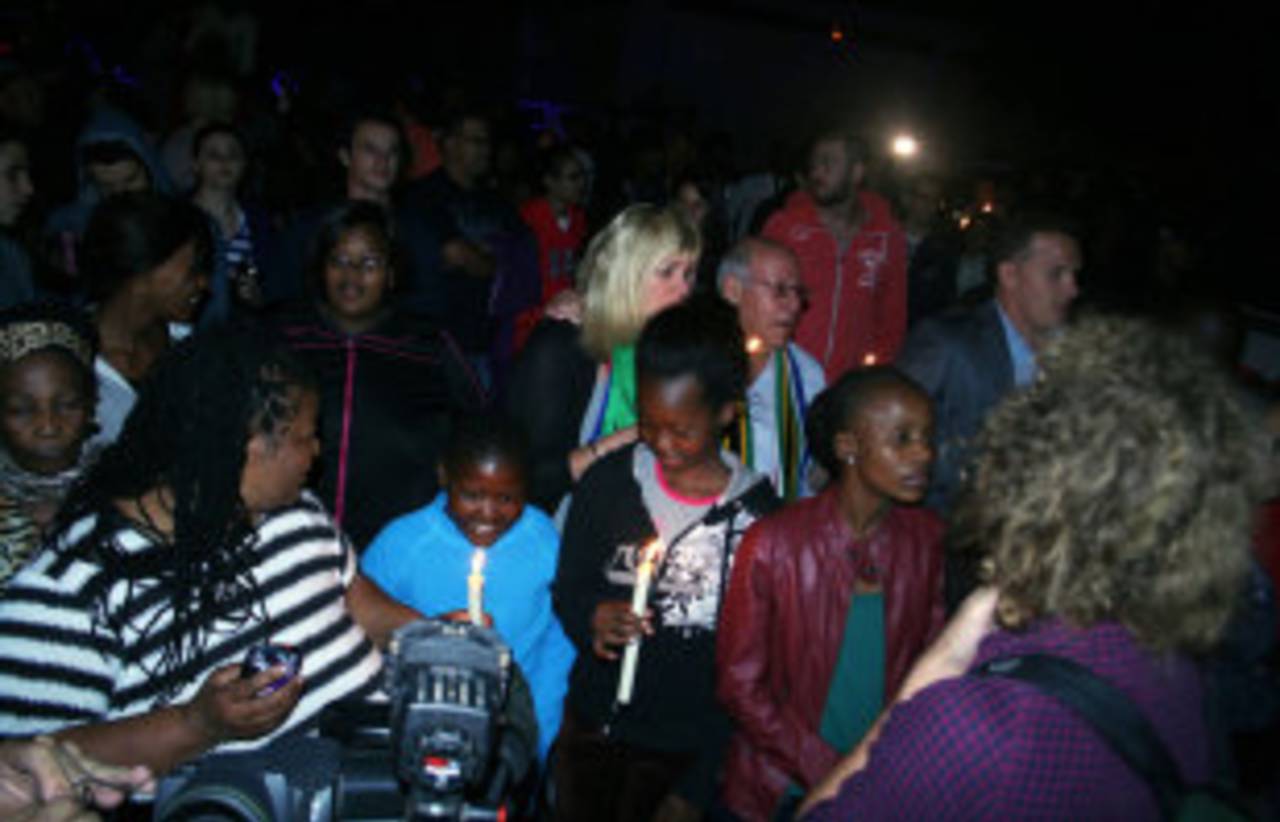I have spent all of about 50 days in South Africa in my life. A month and a half in 2010-11, and not even a week, so far, this time round. I didn't know what to make of my being here, a 10-minute drive from Nelson Mandela's house in Houghton, when he died. This goodbye had been a freight train coming, but how do you prepare for the departure of arguably the most-loved man in the world? There was no precedent of such a big loss in my lifetime. What do you draw reference to? Is it like being a non-Indian in India when Gandhi died?
I will admit that one of my immediate concerns was what would happen to the cricket tour, because I didn't want to leave this country so soon. However, cricket, an old-fashioned thrashing of India by South Africa hours ago, felt insignificant. The man responsible for bringing this great sporting country back on to international stage was no more.
Mandela actually died at 8.50pm on Thursday, when the cricket was still on, with South Africa applying the final touches to the pasting, but the announcement was made three hours later. The nation stopped. The music stopped in the bars as they switched to the television. For five minutes, I tried to make sense of this, but realised I had to go to Houghton in order to do so. Surely I couldn't go to sleep now?
By the time I got to Houghton, people had been there for hours. They had started coming when they heard the Mandela family had come together for an emergency meeting. They must have known the moment was at hand. Anxiously they waited.
They knew their Tata was dying, but how do you reconcile with the death of the strongest man you might have known? Everybody is now talking about the day he came out of 27 years of imprisonment. Until then, nobody knew what would have happened to Mandela. Nobody knew what to expect. Would he have gone grey, would he have lost hair, would he have put on weight? The man that came out that day was handsome and strong, and would go on to oversee a rare bloodless transition from an oppressive regime.
Similarly, you didn't know how people would react today. There had even been suggestions the country might go up in flames the day Mandela died. The state was understandably nervous when it delayed telling the people by three hours. By the time I reached Houghton, it was well past midnight. Now Johannesburg is not a city that comes with recommendations for night-time wandering, but there was a huge number already gathered there.
Past the police cordoning I went, and came upon lovely scenes. People lit their candles, placed them in the designated place, and came back to sing and dance. Truly soulful singing - of the struggle songs, songs about Mandela, the national anthem and gospel songs - was accompanied by slow dancing, clapping of the hands and stomping of the feet. It was like you were at an all-night concert.
People felt the loss, but by now they had told themselves they would not mourn. It was a time to celebrate the life of Mandela. Those songs told stories some history books might struggle to tell. Just the words "Nelson Mandela" were turned into a sweet melody by a lady, who dug that voice right out of her gut for more than half an hour. Others joined in. "Madiba, walk away nah" was on loop. Many of these people, about 25 years ago, used to sing "Free Nelson Mandela". All the small groups became one when the South African national anthem was sung impromptu.
A Nigerian man, who had come here for the Channel O Awards (pan-African music awards), watched Mandela: Long Walk To Freedom two days previously, and gone to the Apartheid Museum a day after, was among the crowds. Now he wondered, just like me, what his being here for three days and witnessing these scenes meant. All you needed to do was to look around. People of all races, all colour, all age, all economic status were here; a white man got into a circle formed by black people and sang a whole Zulu song and walked out to big applause. No policeman acted in an overbearing manner. There was no pushing, no jostling, no ban on photography. Flashes went off every second, the same flash that was forbidden in Mandela's presence because his eyes had gone weak after years of working in a limestone quarry at Robben Island.
Most of the people said they came to know of the news just before midnight, but couldn't go back to sleep, and headed here. It was now half past four, about the time Mandela used to go on his runs in the morning. I imagined him leaving now. I saw a man wearing a loose printed shirt, smiling beatifically at this unity that he had worked all his life for, and then pausing a moment to raise his arms and dance real slow, that Mandela Jive.
Sidharth Monga is an assistant editor at ESPNcricinfo
